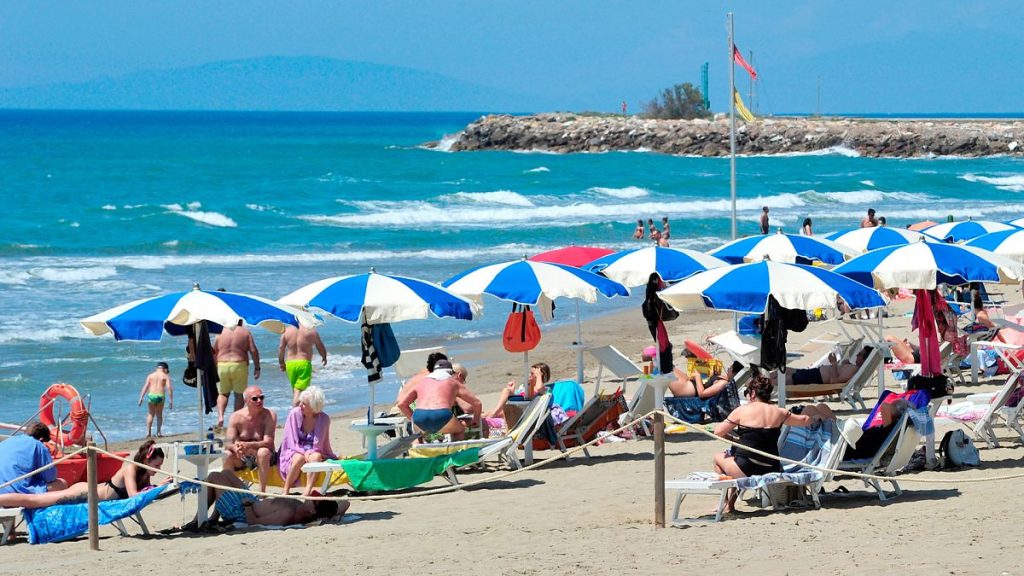Beach clubs in Italy, known as lidos, play a significant role in the country’s economy, accounting for around 6% of its total GDP. In Fiumicino, a popular stretch of coastline near Rome, beach concessions and the lack of a national law regulating them are major talking points. The Bolkestein Directive, an EU competition rule agreed upon in 2006, will require licenses for beach clubs to be tendered starting January 2026, potentially threatening the tradition of family-run lidos that have been passed down through generations. The Italian government has been slow to comply with the directive, leading to tensions among beach club owners and the threat of losing their licenses. Some have gone on strike, while others have formed groups to face the challenges ahead.
Marco Lepre, a beach club operator in Fiumicino, has united with other business owners to prepare for the upcoming tender process mandated by the Bolkestein Directive. The traditional way beach clubs operate in Italy, largely dominated by family-owned businesses, has been disrupted by the need to compete for licenses. The Council of State has ruled that concessions cannot be automatically renewed, further complicating the situation for beach club owners. Trade organizations like Federbalneari Italia have chosen to trust in the government’s efforts to negotiate a resolution with the European Commission, rather than resort to strikes. However, the potential consequences of not having a national law regulating beach concessions could lead to significant fines for Italy.
Elonora Poli, head of the Centro Politiche Europee think tank, highlights the complexities of Italy’s beach club regulations, as they are managed for profit through concessions allocated by local authorities. Without a clear national law in place, the country risks facing expensive fines and ongoing legal challenges. The uncertainty surrounding concession renewals and the need for a unified approach across all municipalities and regions adds to the urgency of resolving the situation. Italy has been grappling with this issue for years, and it is now up to the government to negotiate a reform and avoid costly penalties.
The impact of the Bolkestein Directive on Italy’s beach clubs extends beyond the economic implications, as it also threatens the cultural heritage and traditions associated with these family-run businesses. Generations of families have invested resources and created a unique lifestyle centered around operating beach clubs along the coastline. The potential loss of licenses due to increased competition could disrupt these longstanding traditions and alter the landscape of Italy’s beach tourism industry. The need for a unified approach from all stakeholders, including the government, trade organizations, and beach club operators, is crucial in navigating the challenges posed by the upcoming tender process and EU regulations.
As the deadline for tendering beach club licenses approaches, the pressure mounts for Italy to establish clear regulations and avoid costly fines. The lack of a national law regulating beach concessions not only impacts the economy but also risks eroding the cultural significance of these family-run businesses. Cooperation among all parties involved is essential in finding a solution that balances economic competitiveness with the preservation of Italy’s seaside heritage. With ongoing negotiations between the government and the European Commission, there is hope for a resolution that addresses the concerns of beach club operators while complying with EU competition rules. The future of Italy’s beach clubs hinges on navigating these challenges and preserving the traditions that have defined its coastal tourism industry for generations.


